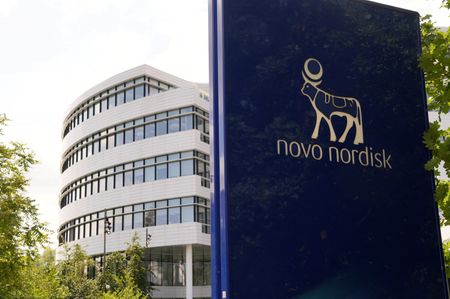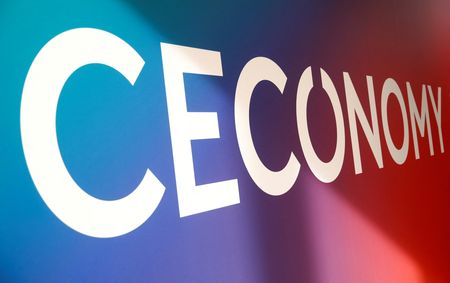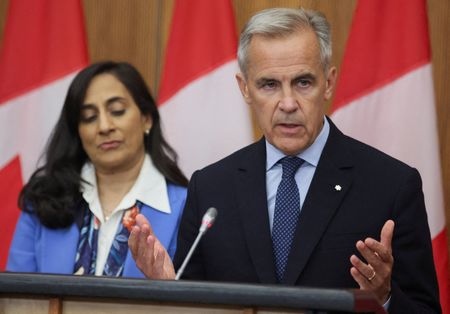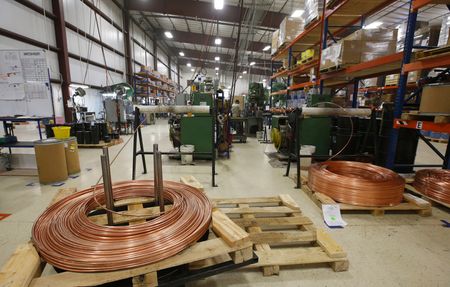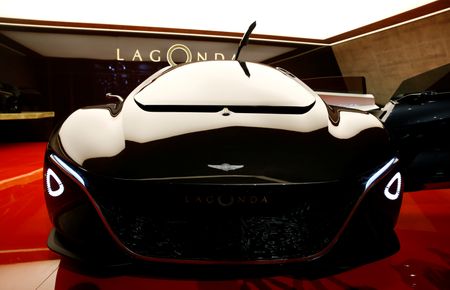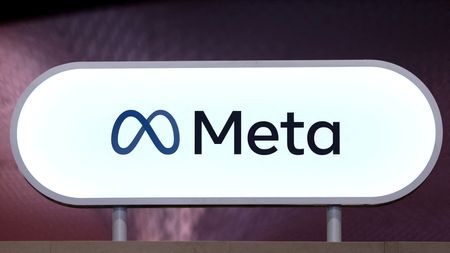By Jacob Gronholt-Pedersen and Maggie Fick
COPENHAGEN (Reuters) -Shares in Wegovy maker Novo Nordisk fell further on Wednesday as analysts warned of persistent competition from copycat drugs in the United States, a day after a profit warning and the naming of a new CEO prompted investors to wipe $70 billion off the drugmaker’s value.
Novo Nordisk slashed its outlook for 2025 sales growth on Tuesday and said it had appointed veteran insider Maziar Mike Doustdar as its new CEO, tasked with reviving its performance in the United States, the largest market for weight-loss drugs.
Novo said the lower sales outlook reflected competition from “compounded” copycats to Wegovy, custom-made medicines that are based on the same ingredients as branded drugs, which took investors by surprise.
While Novo said it was intensifying its efforts to regain patients taking copycat drugs and limit unlawful compounding, analysts at Guggenheim said Novo’s new 2025 guidance did not assume compounding volumes coming down.
Its shares closed down 23% on Tuesday after tumbling as much as 30%. On Wednesday, they closed down 6.3%.
Novo became Europe’s most valuable listed company following the launch of Wegovy in 2021 but its shares have fallen by two-thirds since peaking in June last year on concerns the drugmaker is losing ground in the obesity drug race.
Despite the problems, incoming CEO Doustdar said on an investor call on Tuesday that “we are having a fantastic growth right now with Wegovy”.
“This has really become a severe credibility issue,” said Barclays analyst Emily Field. “They don’t view the issues that they have as severely as the market does, and that’s creating a big problem.”
Doustdar told investors a priority will be to move faster and improve “commercial execution” but did not reveal any new strategic direction.
He currently heads all commercial units globally, minus the United States, which according to analysts at TD Cowen had been “a brighter spot in Novo’s commercial efforts, which could help to buoy the current platform as the pipeline advances”.
Barclays downgraded the stock to “equal-weight” from “overweight”. Bank of America also downgraded the stock to “neutral” from “buy”.
(Additional reporting by Boleslaw Lasocki in Gdansk and Bhanvi Satija in Bengaluru; Editing by Jan Harvey, Emelia Sithole-Matarise and Ros Russell)

